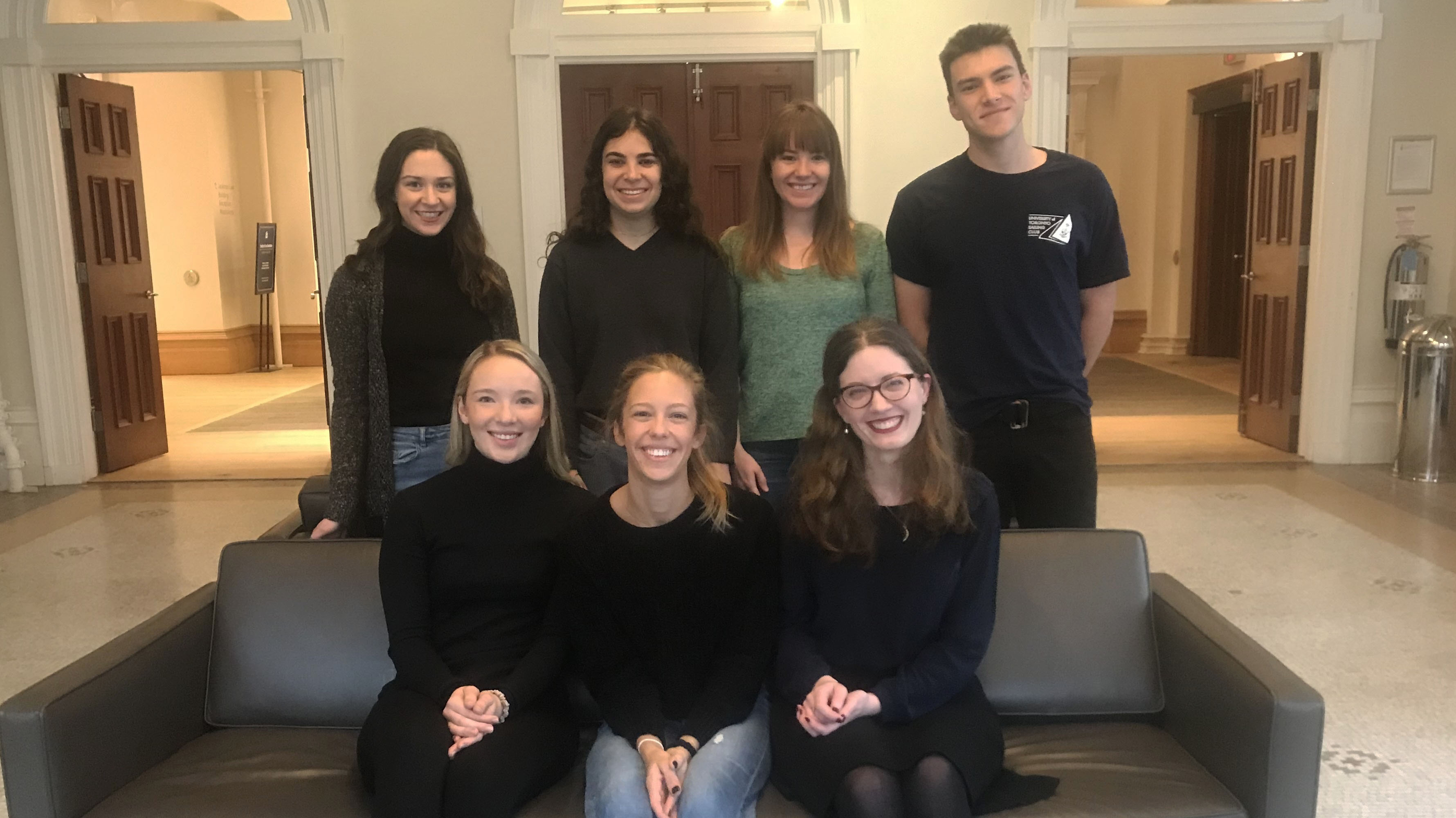
Back row (left to right): Mackenzie Cumberland; Clara Pencer; Leah Kelley; and Florian Nagy. Front row (left to right): Madeleine Carswell; Keely Kinley; and Yara Willox. Members not pictured: Madeleine Andrew-Gee; Adam LaRiviere; Leora Chapman; Haleigh Ryan; and Courtney Cowan.
Today marks a Global Day of Action against air pollution by more than 30 student law clinics from around the world.
The Climate Justice student working group at the David Asper Centre for Constitutional Rights at the University of Toronto’s Faculty of Law is calling on the provincial and federal governments to take meaningful action to curb emissions in Ontario.
“The recent federal election and the wave of climate strikes by young people have brought a renewed focus on climate-related issues,” says second-year law student Keely Kinley. “The idea that our Constitution could be used to safeguard and strengthen environmental rights is gaining momentum.”
The David Asper Centre is devoted to realizing constitutional rights through advocacy, research, and education, and plays a vital role in articulating Canada’s constitutional vision to the world. U of T law students can become involved in the Asper Centre’s work by volunteering with one of their student working groups. The student-led initiatives bring together 10-15 students to undertake research and advocacy in conjunction with academics, civil society groups, or members of the bar on Charter rights advocacy or current constitutional law issues.
“As a student law clinic with a commitment to social justice, the Asper Centre is committed to raising awareness of the issue of climate change in our teaching, research and activism, and to finding ways to support law students to contribute to the struggle for climate justice through the Canadian Charter of Rights and Freedoms,” says Cheryl Milne, the centre’s executive director.
Approximately forty percent of Canada’s petrochemical industry is condensed into a 15-square-mile area in Sarnia, Ontario known as Chemical Valley. The student working group highlighted Chemical Valley as an example of a place where years of government inaction and an inadequate emissions regulation has resulted in a health and environmental crisis.
Just south of the city are the traditional lands of the Aamjiwnaang First Nation community. Members of the Aamjiwnaang First Nation have been asking the government to review emissions standards for years, to no avail. A whistleblower has lodged three complaints over the past decade alleging inadequate engagement with the Aamjiwnaang community.
The Climate Justice working group also cites a 2017 report of the Environmental Commissioner of Ontario that observed that “Indigenous people and communities are disproportionately affected by environmental problems.”
“There are strong arguments to be made that both the provincial and federal governments have duties under the Canadian Charter of Rights and Freedoms to protect the Aamjiwnaang community and other residents of Chemical Valley from the harms of pollution,” says Kinley.
Section 7 and Section 15 of the Charter could both be invoked in order to protect individuals from insufficient government action in the sphere of environmental rights.
“There are any number of examples we could have chosen from. Unfortunately, Chemical Valley is just one example of where the different levels of government have failed in their obligations towards local communities,” says Yara Willox, a second-year law student. “We were happy to learn about the Ontario government’s decision to begin a two-year health study in Sarnia this fall, but it’s not enough.”
Kinley adds that a group of young Canadians recently initiated a lawsuit against the federal government for infringing their Charter rights by not taking sufficient steps to combat climate change.
“There is international precedent for this sort of litigation, and we’ll be paying close attention to the outcome.”
With files from the Climate Justice working group
Read the Climate Justice working group's op-ed

